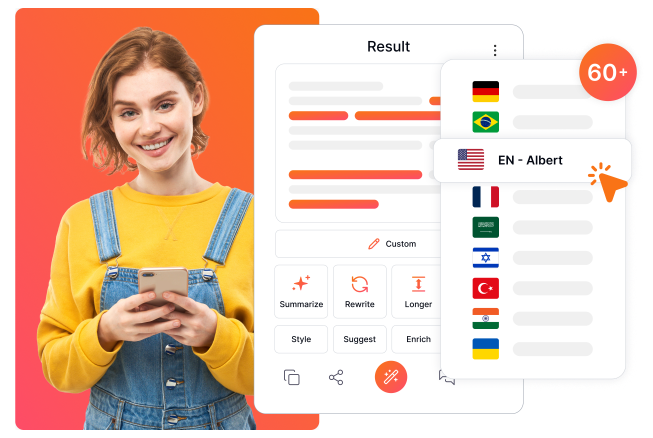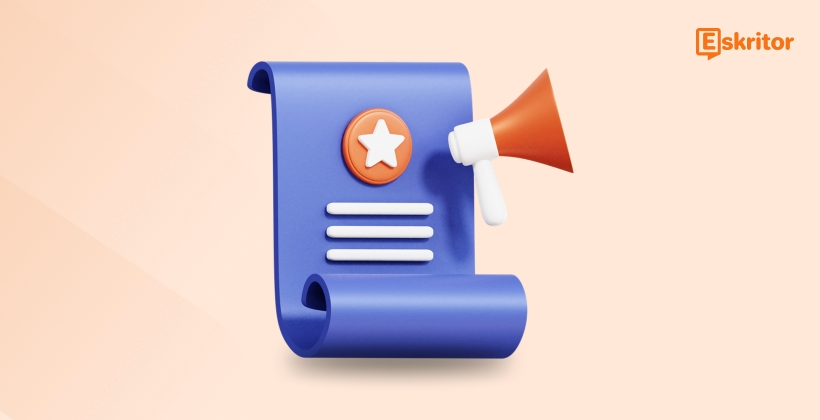The Future of AI Writing Technology Explained
The Future of AI Writing Technology Explained
Blog Article
The Role of AI in Modern Editing Practices
Synthetic intelligence (AI) writing engineering has developed fast over the past decade, reshaping the way we build and communicate with published content. From syntax correction resources to AI-generated novels, the possibilities appear limitless. But where exactly is this engineering heading? Let's explore the improvements, difficulties, and possible future of AI writer.

How AI Writing Engineering Works Nowadays
At its key, AI publishing technology relies on Organic Language Processing (NLP) and machine learning. These systems permit designs to comprehend, produce, and improve individual language. Instruments available today excel at tasks like:
1. Content Generation
AI has achieved a point where it can generate complete website threads, social media marketing sayings, and even information articles. Some versions are capable of mimicking individual writing styles therefore effectively that unique between AI- and human-written content is becoming significantly difficult.
2. Syntax and Type Idea
AI-powered publishing personnel don't only check always for grammar and spelling errors; additionally they offer ideas to improve tone, understanding, and syntax, making complex publishing accessible to a broad audience.
3. Belief Evaluation
AI can consider the psychological tone of a bit, permitting corporations to determine how their communications will resonate with readers. That is specially of good use in advertising and customer interaction.
The Current Developments in AI Writing Technology
A few developments are surrounding the next period of AI-powered writing tools:
• Personalization
AI publishing engineering is significantly effective at tailoring content to individual preferences. Versions may adapt to a user's writing fashion, ensuring the productivity feels authentic.
• Multilingual Functions
Several AI methods are expanding their international achieve by giving increased interpretation functions and support for numerous languages.
• Improved Study Characteristics
AI resources today possess the capability to analyze huge amounts of knowledge and offer fact-checked, well-researched writing in moments, simplifying the method for professionals in industries like legislation, finance, and journalism.
What the Future Holds for AI Writing Engineering
1. Improved Imagination
While recent AI is adept at generating material, their creativity remains limited by habits within its instruction data. Potential AI is not only estimated to help but to produce unique, informative operates that concern human imagination.
2. Smooth Effort
Envision an AI that works along with you in real-time, performing your sentences, performing stay edits, and even brainstorming ideas. AI publishing tools may shortly become co-authors, enabling creativity to movement uninterrupted.
3. Ethical and Accessible Design
With rising problem about plagiarism, misinformation, and opinion, developers will work toward more transparent AI education processes and moral implementation. Potential instruments will probably offer more extensive citations and actions to make sure accountability.
Problems and Criteria
The development of AI writing technology is not without hurdles, including:
• Moral Issues

Who possesses material produced by AI? How can we ensure AI-generated material isn't scattering misinformation? These debates stay unresolved.
• Human-AI Harmony
Will AI match human creativity or entirely replace certain functions? Many authors and artists concern yourself with their relevance in an AI-driven world.
• Availability Separate
Not all agencies or regions have equivalent usage of cutting-edge AI instruments, increasing questions in regards to the impact of the engineering on world wide inequality.
Changing the Way We Write
AI writing engineering is still in its infancy in comparison to its potential. Whether you're students creating essays, a content marketer targeting unique readers, or perhaps a novelist seeking enthusiasm, AI instruments will continue steadily to revolutionize the publishing process. The next decade promises breakthroughs that mixture human ingenuity with equipment intelligence, creating a future where writing is more efficient, available, and impactful than actually before.
Report this page